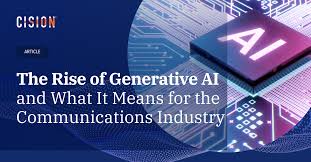In the age of rapid technological advancement, few innovations have captured the imagination and stirred as much debate as artificial intelligence (AI). Defined as the simulation of human intelligence processes by Math Solver AI, AI has permeated various aspects of our lives, from virtual assistants like Siri and Alexa to sophisticated algorithms powering self-driving cars and personalized recommendations on streaming platforms. However, the implications of AI extend far beyond mere convenience, raising profound questions about ethics, employment, and the very nature of human cognition.
At its core, AI operates through the analysis of vast amounts of data to recognize patterns, make predictions, and perform tasks with increasing autonomy. Machine learning, a subset of AI, enables systems to improve their performance over time without explicit programming, learning from experience and refining their algorithms iteratively. This capability underpins many AI applications, from image and speech recognition to natural language processing and decision-making algorithms.
One of the most significant promises of AI lies in its potential to revolutionize industries and enhance productivity. In healthcare, AI-powered diagnostics can detect diseases more accurately and at earlier stages, improving patient outcomes and reducing healthcare costs. In finance, algorithmic trading platforms leverage AI to analyze market trends and make split-second investment decisions, driving efficiencies and maximizing returns. Moreover, AI-driven automation is poised to streamline manufacturing processes, optimize supply chains, and augment customer service across various sectors.
However, alongside its transformative potential, AI raises profound ethical concerns and societal challenges. The issue of algorithmic bias has garnered increasing attention, as AI systems trained on biased datasets can perpetuate and even exacerbate existing inequalities. For instance, biased algorithms in recruitment processes may inadvertently discriminate against certain demographic groups, perpetuating systemic biases in employment. Similarly, AI-driven predictive policing models have been criticized for disproportionately targeting marginalized communities, exacerbating racial disparities in law enforcement.
Moreover, the rapid advancement of AI has sparked fears of job displacement and economic upheaval. While automation has historically led to the creation of new jobs and industries, the pace and scale of AI adoption present unique challenges. Some experts warn of a “hollowing out” of the job market, where routine tasks susceptible to automation are replaced by AI, leaving a growing population of workers without viable employment opportunities. Addressing these concerns will require proactive measures, including investments in education and training programs to equip workers with the skills needed in an AI-driven economy.
Furthermore, the rise of AI raises existential questions about the nature of intelligence and consciousness. As machines become increasingly capable of mimicking human cognitive functions, debates rage over the possibility of achieving artificial general intelligence (AGI) — a level of intelligence that surpasses human capabilities across a wide range of domains. While AGI remains a hypothetical concept, its potential implications, from technological singularity to existential risks, demand careful consideration and ethical foresight.
In navigating the complex landscape of AI, policymakers, technologists, and society at large must prioritize ethical considerations, transparency, and accountability. Robust regulations are needed to ensure that AI systems are developed and deployed in a manner that upholds fundamental rights and values, mitigating the risks of bias, discrimination, and unintended consequences. Moreover, fostering interdisciplinary collaboration and public engagement is essential to foster a deeper understanding of AI’s potential and pitfalls, empowering stakeholders to shape its trajectory in a way that serves the common good.
Ultimately, the future of artificial intelligence hinges not only on technological advancement but also on our collective wisdom and foresight in harnessing its power responsibly. By embracing innovation while upholding ethical principles and safeguarding human dignity, we can unlock the transformative potential of AI to create a more equitable, inclusive, and prosperous society.


